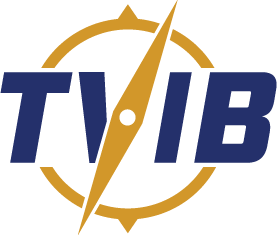TVIB Blog – Mike Rushing Legacy Service Award
Nominations Are Now Open for the 2026 Mike Rushing Legacy Service Award
TVIB is proud to announce that nominations are now open for the 2026 Mike Rushing Legacy Service Award.
This award recognizes individuals in the towing vessel and maritime community who consistently demonstrate the values Mike Rushing represented throughout his life and career—steady leadership, service-first character, and a genuine commitment to helping others succeed.
Each year, this award gives our industry an opportunity to recognize those who lead by example, serve their communities, and mentor the next generation of maritime professionals.
What the Award Recognizes
The Mike Rushing Legacy Service Award honors individuals who demonstrate outstanding:
Community Service
Those who show up, give back, and strengthen the communities they live and work in—often without seeking recognition.
Professional Excellence
Individuals who consistently raise the bar through their work, leadership, and dedication to safety and integrity in the maritime industry.
Mentorship
Those who invest in others, share their knowledge, and help develop the next generation of leaders in the towing vessel community.
Honoring a Legacy of Leadership and Service
Mike Rushing’s legacy represents the very best of our industry.
He was known for his steady presence, his strong character, and his ability to lead in a way that made others better—whether through direct mentorship, professional guidance, or simply the way he carried himself in every situation.
This award is a meaningful way to keep that legacy alive and to recognize those who carry that same spirit forward.
Past Recipients
TVIB is proud to recognize the past recipients of the Mike Rushing Legacy Service Award:
- 2025: Cathy Hammond
- 2024 (Inaugural Year): George Foster
These individuals reflect the heart of what this award stands for: leadership rooted in service, professionalism, and a commitment to others.
Who Should You Nominate?
If someone immediately comes to mind—a person who:
- leads with integrity
- mentor’s others consistently
- shows up for the industry and their community
- quietly raises the standard for everyone around them
…we encourage you to submit a nomination.
Often, the people most deserving of recognition are not the ones seeking it.
Submit Your Nomination
Nomination deadline: March 1, 2026
Submit here: thetvib.org/mikerushing
Help Spread the Word
One of the best ways to ensure strong nominations is to make sure the entire industry hears about it.
If you believe in recognizing the people who make a lasting impact, please share this announcement with your colleagues and networks.
Together, we can ensure the right people are recognized—and that Mike Rushing’s legacy continues to inspire the industry.
#TVIB #Maritime #TowingVessel #Leadership #Mentorship #CommunityService #MaritimeSafety #SeamensChurchInstitute #WaterwaysJournal


